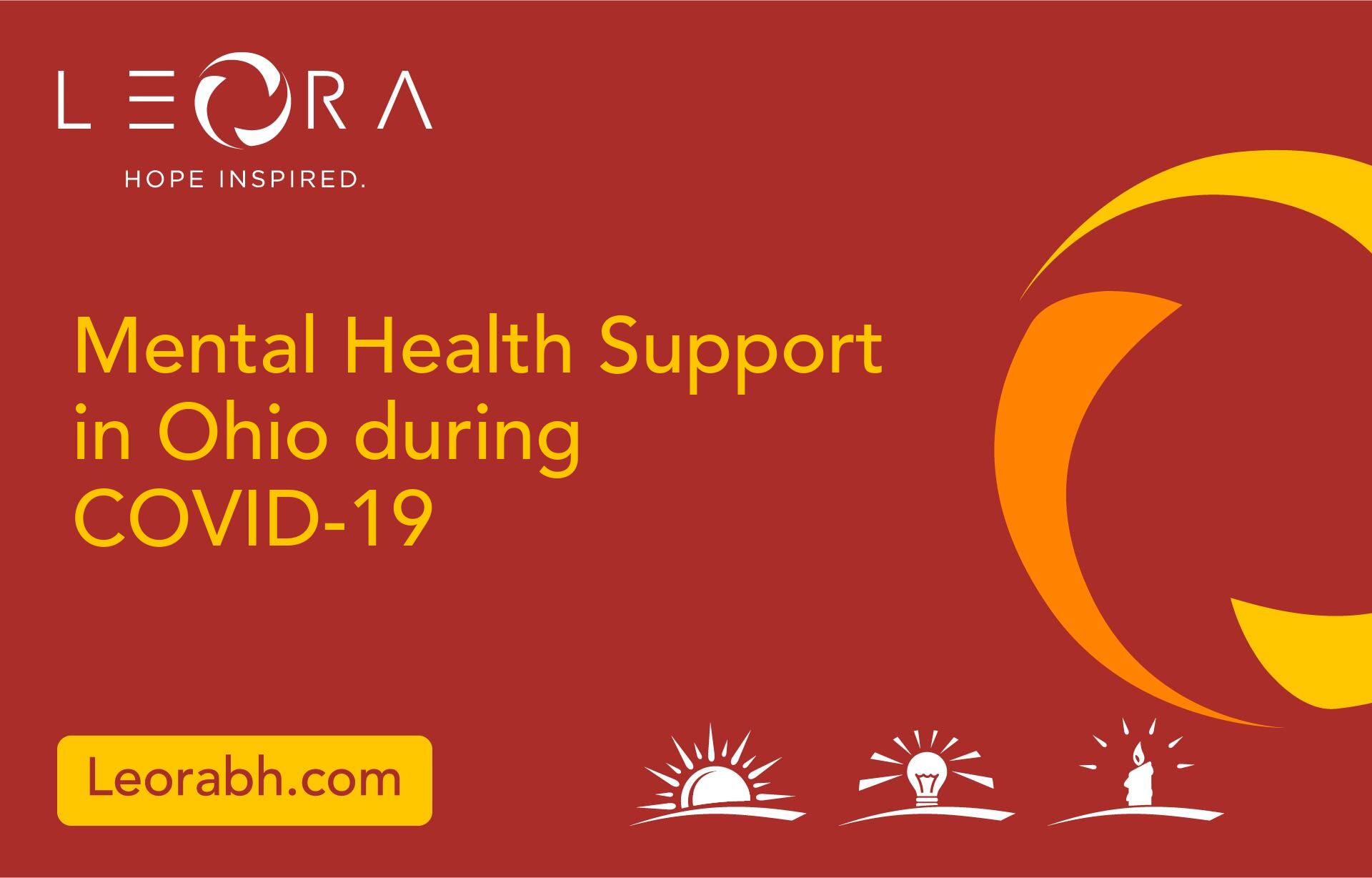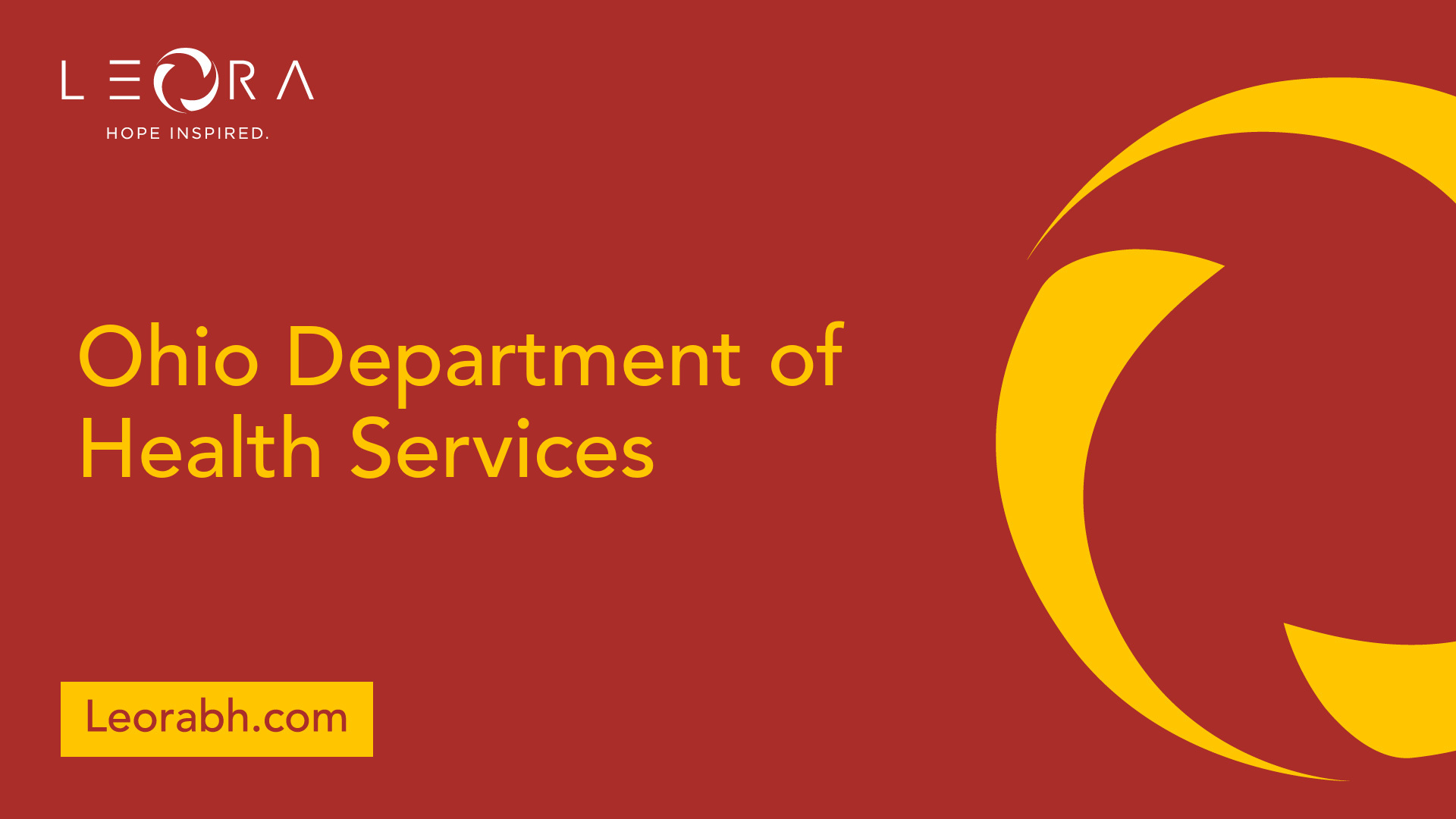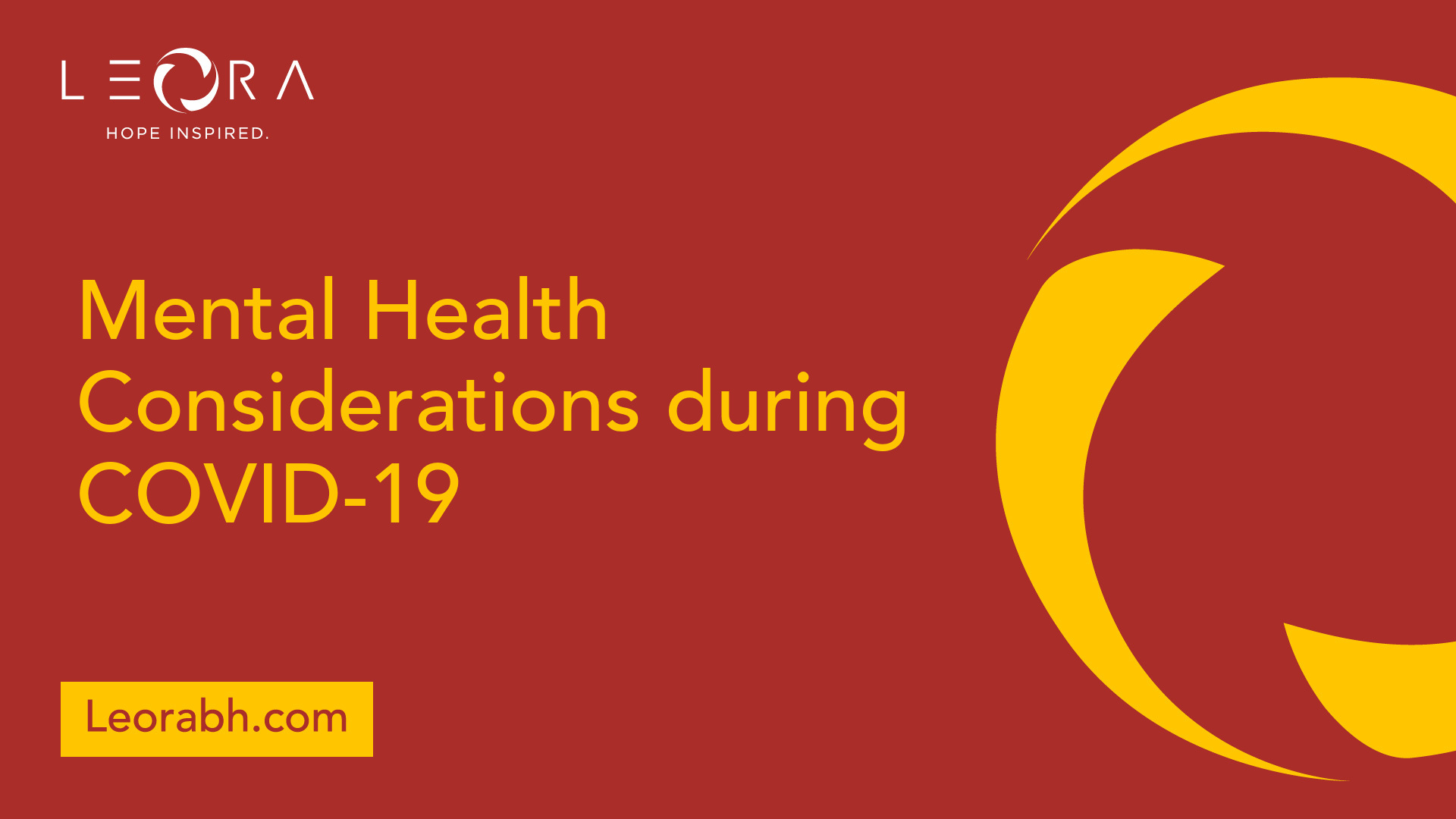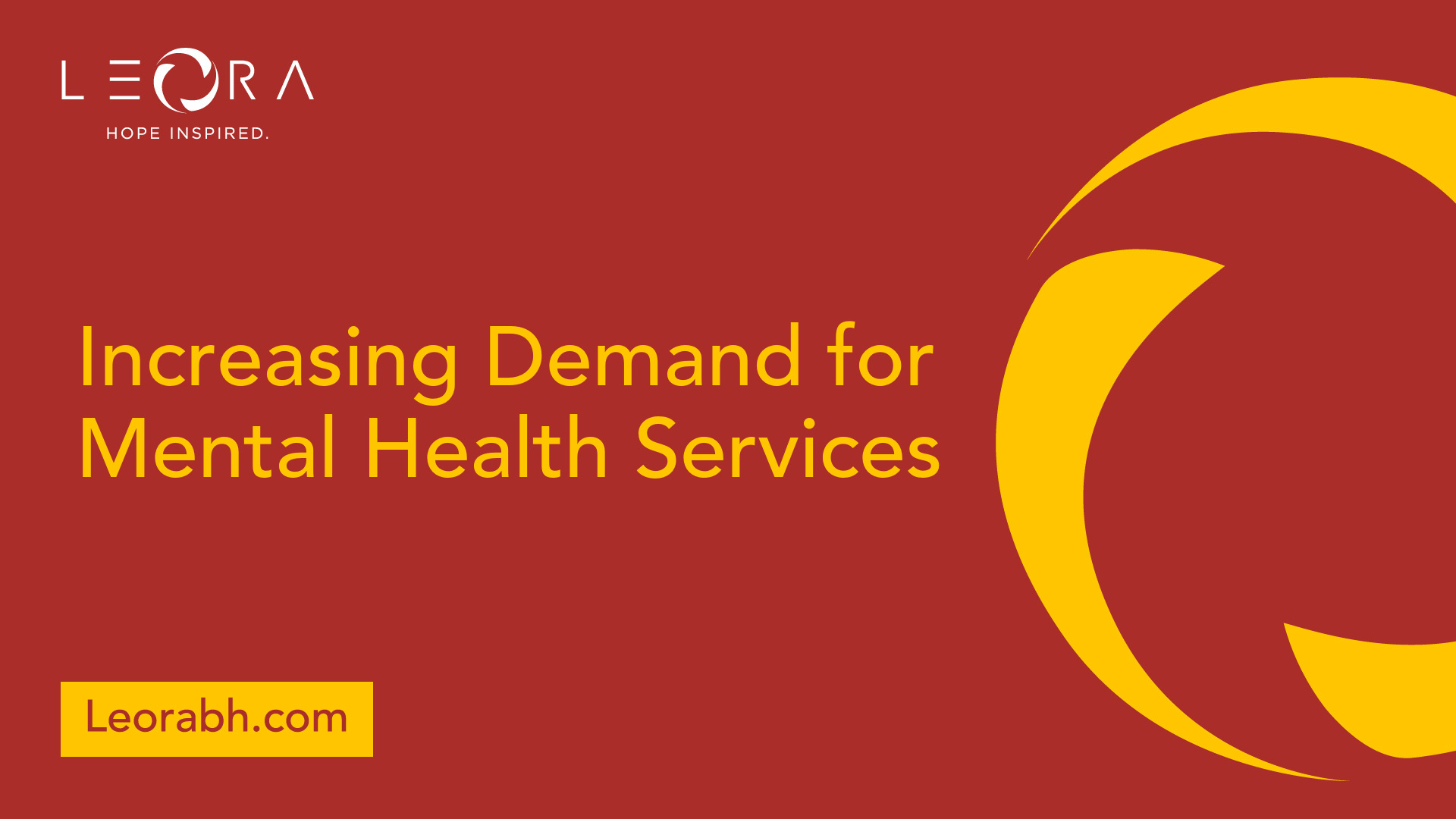Mental Health Support During COVID in Ohio
Discover mental health support during COVID in Ohio. From resources to support programs, find assistance here.

Mental Health Support in Ohio during COVID-19
During the COVID-19 pandemic, the impact on mental health in Ohio has been significant. The prevalence of high mental health impairment (MHI) among Ohio adults rose from 6.4% in 2017 to 8.2% in 2021, with notable increases observed among Black and Hispanic individuals. Young women in Ohio also experienced high levels of MHI in 2021.
Impact of COVID-19 on Mental Health in Ohio
The stress and uncertainty brought about by the pandemic have led to a rise in mental health challenges across Ohio. Individuals have been grappling with anxiety, depression, and feelings of isolation. It is crucial to address these issues promptly and provide adequate support to those in need.
Resources for Mental Health Support
For individuals in Ohio seeking mental health support during COVID-19, there are various resources available to offer assistance and guidance. The Ohio Department of Health operates a Coronavirus Questions hotline at 1-833-4ASKOHD (1-833-427-5634) for individuals looking for information about COVID-19 in Ohio [2].
Additionally, the World Health Organization (WHO) has developed mental health guidelines to support individuals' well-being during the COVID-19 outbreak, emphasizing the importance of addressing stress and anxiety caused by the crisis [2]. The Center for Disease Control and Prevention (CDC) also offers guidance on managing stress and anxiety during these challenging times, emphasizing the need to build resilience and support systems to cope effectively.
Furthermore, the Child Mind Institute provides valuable advice on how to discuss the Coronavirus with children, aiming to allay their fears and uncertainties related to the pandemic [2].
In times of crisis, accessing mental health support is essential for maintaining well-being and resilience. By utilizing the available resources and seeking assistance when needed, individuals in Ohio can navigate the challenges posed by COVID-19 with support and guidance. For additional mental health programs and resources in Ohio, consider exploring culturally inclusive mental health in Ohio, fighting mental health stigma in Ohio, adolescent mental health care in Ohio, and veterans mental health programs in Ohio.

Ohio Department of Health Services
During the COVID-19 pandemic, the Ohio Department of Health has played a vital role in providing essential services to support the mental health needs of individuals in Ohio. Two key avenues through which the department offers assistance are the Coronavirus Questions Hotline and Support and Information Services.
Coronavirus Questions Hotline
For those seeking information and guidance related to COVID-19 in Ohio, the Ohio Department of Health operates the Coronavirus Questions Hotline. By dialing 1-833-4ASKOHD (1-833-427-5634), individuals can access valuable resources and support to address their concerns about the pandemic. This hotline serves as a crucial link for Ohio residents to stay informed and receive timely updates regarding the evolving situation.
Support and Information Services
In addition to the Coronavirus Questions Hotline, the Ohio Department of Health provides a range of support and information services to assist individuals in navigating the challenges posed by the pandemic. These services are designed to offer mental health guidance, resources, and strategies to cope with the psychological impacts of COVID-19.
Drawing upon guidance from the World Health Organization (WHO) and the CDC (Center for Disease Control & Prevention), the Ohio Department of Health is committed to promoting mental and psychological well-being during this crisis. By addressing stress, anxiety, and other mental health concerns, these services aim to empower individuals, their families, and communities to build resilience and overcome the challenges brought about by the pandemic.
The availability of the Coronavirus Questions Hotline and the array of Support and Information Services provided by the Ohio Department of Health underscores the state's commitment to prioritizing mental health support for its residents during these unprecedented times. By leveraging these resources, individuals in Ohio can access the assistance they need to navigate the mental health challenges arising from the COVID-19 pandemic effectively.

Mental Health Considerations during COVID-19
Navigating mental health challenges during the COVID-19 pandemic has been a pressing issue globally, including in Ohio. Understanding the mental health guidelines provided by renowned organizations can offer valuable support during these trying times. Here, we delve into the guidelines set by the World Health Organization (WHO) and the stress management guidance offered by the Center for Disease Control and Prevention (CDC).
WHO Mental Health Guidelines
The World Health Organization (WHO) has developed crucial mental health considerations to support individuals in maintaining their mental and psychological well-being amidst the COVID-19 outbreak. Stress generated by the crisis can significantly impact mental health, and the guidelines aim to equip individuals with strategies to cope effectively. By addressing the mental health aspects of the pandemic, individuals can better navigate the challenges they face.
For more details on mental health support during COVID-19, you can explore the resources provided by the Richland Mental Health & Recovery Board.
CDC Stress Management Guidance
In parallel, the Center for Disease Control & Prevention (CDC) offers comprehensive guidance on managing anxiety and stress throughout the COVID-19 outbreak. Stress management is crucial for maintaining mental well-being during uncertain and challenging times. By focusing on coping mechanisms and strategies to alleviate stress and anxiety, individuals can build resilience and support their loved ones through the crisis.
To access additional resources and information related to mental health support during the pandemic, visit the Richland Mental Health & Recovery Board for a more in-depth understanding of the available assistance in Ohio.
By adhering to the mental health guidelines from reputable organizations like the WHO and following the stress management guidance presented by the CDC, individuals in Ohio can take proactive steps to safeguard their mental well-being during the ongoing COVID-19 situation.

Support Programs in Ohio
Exploring mental health support programs in Ohio is essential, especially during challenging times like the COVID-19 pandemic. There are various initiatives and resources available to provide assistance and guidance to individuals in need. In this section, we will delve into two notable programs: the Third Street Family Health Services Program and the advice provided by the Child Mind Institute.
Third Street Family Health Services Program
The Third Street Family Health Services Program in Ohio has been instrumental in offering a COVID-19 Community Support Program. This program focuses on providing telehealth coordination of services for individuals navigating quarantine, isolation, emergency room visits, and urgent care needs during the pandemic. By utilizing telehealth services, individuals can access mental health support remotely, ensuring continuity of care and assistance during these challenging times.
Child Mind Institute Advice
The Child Mind Institute provides valuable advice on addressing the concerns of children regarding the Coronavirus. The advice aims to alleviate children's worries and concerns about the pandemic while providing reassurance and guidance on how to navigate these uncertain times. By offering guidance on how to talk to children about COVID-19, the Child Mind Institute plays a crucial role in supporting families and promoting mental well-being among young individuals.
By utilizing the resources and programs offered by the Third Street Family Health Services Program and the advice provided by the Child Mind Institute, individuals in Ohio can access valuable support and guidance to navigate the mental health challenges exacerbated by the COVID-19 crisis. These programs are integral in providing assistance, reassurance, and resources to promote mental well-being and resilience during these unprecedented times. For additional resources and information on mental health support programs in Ohio, consider exploring initiatives for culturally inclusive mental health in Ohio, combating mental health stigma in Ohio, addressing adolescent mental health care in Ohio, and supporting veterans through dedicated mental health programs in Ohio.

Increasing Demand for Mental Health Services
The demand for mental health services in Ohio has seen a significant increase in recent years, primarily driven by various stressors related to the COVID-19 pandemic and the opioid overdose epidemic.
Growth in Demand for Treatment
According to The Ohio Council of Behavioral Health & Family Services Providers, the demand for mental health and substance use disorder treatment in Ohio surged by 353% between 2013 and 2019. Furthermore, in a survey conducted from August to October 2021, over 70% of behavioral health care organizations in Ohio reported a considerable increase in demand for adult and youth mental health services, with over 60% noting higher demand for adult addiction services and more than 57% reporting increased demand for crisis services during the same period.
Staffing Challenges in Ohio
Meeting the growing demand for mental health services in Ohio has presented significant staffing challenges. One of the issues contributing to these challenges is the turnover within the behavioral health workforce. The lack of professional value, coupled with uncompetitive pricing markets resulting from insufficient insurance coverage and reimbursement, has led to high turnover rates and difficulty in attracting and retaining skilled workers in the field.
State regulations mandating a master's degree for behavioral health licensure in Ohio have also posed obstacles, limiting the earning potential for individuals without this level of education. This requirement not only affects the workforce's earning capabilities but also hinders recruitment efforts and career progression within the industry. Addressing these requisites and creating more accessible pathways and growth opportunities are crucial to alleviating the workforce shortages and meeting the rising demand for mental health services in Ohio effectively.
The prevalence of high mental health impairment (MHI) among Ohio adults has seen an uptick from 6.4% in 2017 to 8.2% in 2021, particularly exacerbated by the challenges posed by the COVID-19 pandemic. Notably, increases in high MHI have been observed among Black and Hispanic individuals, as well as young women, signaling the need for targeted and culturally inclusive mental health programs in Ohio to address these disparities.
As the demand for mental health services continues to rise in Ohio, it is imperative to address these challenges effectively to ensure that individuals in need receive the necessary support and care. Initiatives aimed at improving workforce retention, providing accessible pathways for career growth, and enhancing mental health services tailored to diverse populations are vital in meeting the evolving mental health needs of Ohio residents.
Factors Influencing Workforce Trends
The behavioral health workforce in Ohio faces various challenges that impact workforce trends, including turnover challenges, educational requirements, and career growth opportunities.
Turnover Challenges
Turnover in the behavioral health workforce in Ohio is a significant concern. According to The Ohio Council of Behavioral Health & Family Services Providers, turnover is partly attributed to a lack of professional value perceived within the industry. Additionally, uncompetitive pricing markets resulting from insufficient insurance coverage and reimbursement exacerbate the situation. These factors contribute to wage stagnation and make it challenging to attract and retain workers in the behavioral health field.
Reasons for Turnover Challenges
- Lack of professional value: Limited recognition of skills and expertise
- Uncompetitive pricing markets: Inability to sustain competitive rates
- Insufficient insurance coverage and reimbursement: Challenges in securing adequate financial support for services
Efforts to address turnover challenges should focus on improving the overall perception of the behavioral health profession, advocating for fair reimbursement policies, and implementing strategies to enhance job satisfaction and retention rates.
Educational Requirements and Career Growth
State regulations in Ohio often mandate that individuals hold a master's degree to obtain a behavioral health licensure. This requirement poses a barrier to entry for individuals without this level of education, limiting their earning potential within the industry. The necessity for advanced degrees can hinder recruitment efforts and impede career advancement opportunities for aspiring professionals.
Educational Requirements and Career Growth
- Master's degree required for licensure: Restricts entry into the field
- Limiting earning potential for some: Constrains financial opportunities
- Hindering recruitment and career ladder growth: Challenges in attracting and retaining professionals
To address these limitations, it is essential to create more accessible pathways for individuals to enter the behavioral health field. Offering alternative licensure options and career development programs can help attract a diverse pool of talented professionals to work in mental health support roles. Moreover, expanding opportunities for career growth and advancement within the industry can improve employee satisfaction and reduce turnover rates.
By recognizing and addressing the factors influencing workforce trends in the behavioral health sector, Ohio can work towards building a robust and sustainable workforce dedicated to providing essential mental health support services to its residents. Addressing turnover challenges and educational requirements is crucial to ensuring the availability of qualified professionals who can effectively meet the increasing demand for mental health services in Ohio.
Addressing Workforce Shortages
The mental health landscape in Ohio is facing significant challenges, particularly in addressing workforce shortages. Two key issues impacting the workforce are wage stagnation and the need for improved recruitment and retention strategies.
Wage Stagnation Issues
Wage stagnation is a pressing concern within the mental health sector in Ohio. According to The Ohio Council of Behavioral Health & Family Services Providers, turnover in the behavioral health workforce is partly attributed to a lack of professional value, leading to uncompetitive pricing in the market due to insufficient insurance coverage and reimbursement. This has resulted in challenges in attracting and retaining qualified individuals in the field.
To combat wage stagnation issues, it is crucial for policymakers and organizations in Ohio to reevaluate compensation structures and ensure that mental health professionals are fairly compensated for their critical work. By offering competitive salaries and benefits, the state can create a more sustainable workforce and improve the quality of care provided to individuals seeking mental health support.
Improving Recruitment and Retention
Improving recruitment and retention practices is essential to overcome the workforce shortages in Ohio's mental health sector. State regulations often require individuals to hold a master's degree for behavioral health licensure, limiting earning potential for those without this level of education [3]. This educational requirement poses a barrier to entry for many individuals interested in pursuing a career in behavioral health.
To address this challenge, Ohio should focus on creating more accessible pathways for individuals to enter the mental health workforce, including opportunities for career growth and advancement. By providing support for ongoing education and training, the state can attract a diverse pool of talent and ensure the sustainability of mental health services across communities.
By addressing wage stagnation issues and implementing effective recruitment and retention strategies, Ohio can work towards building a robust and resilient mental health workforce that meets the growing demand for services in the state. Continued efforts in this area are crucial for providing high-quality care and support to individuals in need of mental health services during the challenging times brought about by the COVID-19 pandemic.
References
[1]: https://ojph.org/index.php/
Find Your Inner Light
Related Articles
Contact Us
Leora Behavioral Health offers a comprehensive addiction treatment programs to help you get your life back on track.
Our trained professionals will work with you to develop a personalized treatment plan that meets your unique needs. If you or someone you know is struggling with addiction, reach out to Leora Behavioral Health today.


.svg)





.svg)
.svg)
.svg)
.svg)